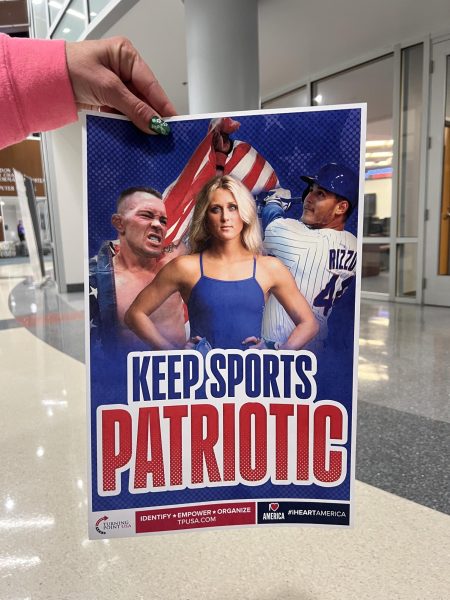
On Thursday March 13, UNCW’s chapter of national organization Turning Point USA hosted an event featuring Riley Gaines. Gaines is a former NCAA college swimmer who famously competed against Lia Thomas, the first transgender woman to win a Division I NCAA championship. The two raced against each other in 2022 in Knoxville, Tenn. where they tied for fifth place. Despite losing to four cisgender women, Gaines has become an outspoken advocate against transgender women competing in women’s sports.
In 2022, Gaines—competing for the University of Kentucky—and Thomas, competing for the University of Pennsylvania, tied for fifth place in the 200-yard freestyle event at the NCAA championship. At the time, there was only one fifth place trophy which was given to Thomas, and Gaines was given an alternate trophy to hold during the awards ceremony. She later received her own fifth place trophy in the mail. Since then, Gaines has alleged that Thomas was only given the trophy to “save face.”
“Once I got out of the water, we kind of go behind the podium to the awards ceremony where they distribute the trophies,” said Gaines on one podcast. “So, I walked back there and the NCAA official came up to me and said, ‘Hey, we only have one fifth place trophy’ — which I understood.”
Gaines then claimed that upon further questioning, the NCAA official stated, “‘We have to give the trophy to Lia, but we respect and admire you so much.’”
“So, at this point, he basically admitted to me that the NCAA was trying to save face,” Gaines stated. “I don’t think they handled this properly, but I don’t think they were prepared to handle this kind of situation. They were faced with something they were unsure what to do with.”
Since her statement, the NCAA has adopted a formal policy: in the event of a tie the onsite trophy will be awarded to the oldest swimmer, and the younger swimmer will receive their trophy in the mail.

Shortly after this tie, Gaines created the Riley Gaines Center, where she works to “protect women, free speech and common sense.” One of the main arguments used by Gaines and other activists who speak out against the inclusion of transgender women in women’s sports is “biological advantages” —the idea that it is simply not fair for transgender women to compete alongside cisgender women because of the natural advantages transgender women have from being born in a male body.
In an interview with NPR in 2025, reporters Michael Martin and Obed Manuel sat down with endocrinologist Dr. Bradley Anawalt to talk about the biological differences between a transgender and cisgender woman. “The best data is from military recruits, and there are a couple of recent studies, one published in 2020 and one in 2023. They looked at cis men, cis women, trans man and trans women. How many steps you can do in a minute, how many pushups you can do in a minute and how fast you can run 1.5 miles. And what they found in that study was that trans women remained faster for up to two years after the initiation of gender affirming hormone therapy. At four years, trans women continued to do more sit ups and pushups.”
Anawalt affirms that there is a biological difference between men and women: that men are naturally stronger and more prone to speed and aggression. However, there’s another aspect he touches on: sports are full of inequities.
“We just need to acknowledge the other part of the equation, which is that there’s always been inequities in sport,” Anawalt says. “Somebody who’s born taller than somebody who is shorter and plays basketball, we really don’t have this conversation about the potential competitive advantage for people participating in ballet or theater. Peter Pan is almost always played by an adult woman because an adult can act with greater artistry and maturity based on age and experience.”
That’s the thing. Michael Phelps, a former swimmer and the most decorated Olympian of all time, is 6’4” with a 6’7” wingspan. According to Colleen DeBellefonds of Biography.com, “Phelps has hyperextended joints—but his double-jointed ankles bend 15 percent more than his rivals. Paired with his size-14 feet, his legs act like flippers, thrusting him through the water.” He has short legs and a long torso, which allows him to propel faster in the water. Ryan Lochte, the third most decorated Olympic swimmer of all time, does not. And Lochte is still a great swimmer, but Phelps is clearly at a biological advantage. These advantages exist everywhere in sports. Riley Gaines would be at a disadvantage no matter what: not because of Lia Thomas, but because there were four cis women who swam better and faster than her. These women may have had larger wingspans or shorter legs, who knows? Whatever it is, they may have been at a biological advantage. But Thomas and Gaines tied for fifth place. The fact that Gaines is upset about a trans woman competing against her is a non-sequitur: she lost either way.
And Gaines is well within her rights to be upset at her loss. Additionally, she is allowed to feel uncomfortable with changing in front of Thomas in a shared locker room, as she states on her website. No one can take her feelings away from her or tell her what she can and cannot be uncomfortable with. But the issue at hand is not Gaines’s personal experiences or her discomfort, it’s about her narrow-minded views of trans women and the harmful rhetoric she spreads about the transgender community.
On her website, Gaines has one statement emphasizing:
“I am not anti-trans. I am pro-woman.”
Yet her speech at UNCW contained messages that directly contradict this. Her message that night was not about trans women in sports; it was about denying the existence of the trans community. She began the event by saying, “There’s a lot of things that scare me, but a man in a dress will simply never be one of them anymore.”
At one point during the event, Gaines was interrupted by a protestor who marched into the room chanting, “trans women are women, you are just a bigot.” The protestor was subsequently removed by police, which prompted cheers from the audience.
“I hear this said all the time, ‘trans women are women,’” Gaines responded after the interruption. “That’s like saying ‘hotdogs are dogs.’ Saying it doesn’t make it reality.”
It is statements like these that reveal the true nature of Gaines’s message. Her intent is not to have a genuine conversation about the place for transgender athletes in sports. Her intent is not to share her own experiences as a successful female athlete and empower young girls to stand up for themselves. Her intent is not to advocate for the protection of women.
Most of all, Gaines’s intent is to echo the sentiment that has been repeatedly shared by current President Donald Trump and his followers: transgender people will never be respected and will never be seen as they truly are. Gaines, along with the Trump administration, merely use the topic of sports and biological advantages as a red herring, to make it seem as if the goal is truly fairness and protection for women.
This is more than just conversations within sports, this is a nationwide concern for the trans community. On Jan. 20, the day he took office, President Trump signed an executive order about sex, gender identity and gender ideology, which declared that there are only two sexes. As Gaines restated this, the room thundered with applause. “It’s hard to believe that a sitting president has to take time out of his day to exercise his executive power to declare such, but nonetheless it is necessary.”
This Executive Order states that “sexes are not changeable and are grounded in fundamental and incontrovertible reality,” and creates several challenges for the transgender community. This includes removing the option for an “X” gender marker on government issued identification paperwork, such as passports, and forcing transgender individuals to choose which option—either “M” or “F”—matches their biological sex at birth. By celebrating this Executive Order, Gaines further proved that her focus is not actually on the fairness of sports, but rather on the marginalization of the entire transgender community.
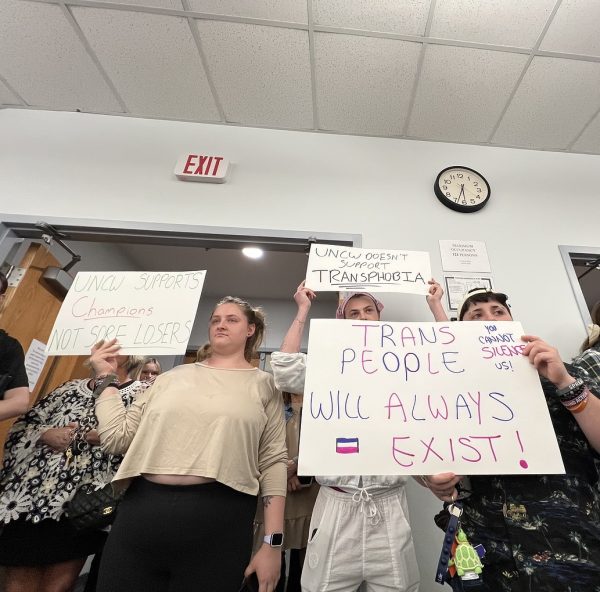
During the event, Gaines remarked on her close relationship with Trump, and laughed about how he sped up the green card process for her English husband. “I kind of forgot our government knew how to do things that actually benefit American people, after the last four years. But truly, it has been win, after win, after win, with Donald Trump back in office.”
Gaines spent much of her speech praising the actions of Trump and the Republican party, despite admitting herself that she has never taken a government class, in neither high school nor college.
“Incredibly concerning, I know. I never had to,” she stated. “I knew we had three branches of government.”
Students and community members outside the event were keen to share their thoughts and feelings.
Lindsay Marhold, a resident of Carolina Beach, has followed Turning Point USA since its origin. Marhold commented on the individuals who protested the event by saying, “I just feel like they didn’t listen. They shut their ears. I don’t know how they did it and hold up signs.” She continued, “We have science on our side, and we just believe there are two sexes. As a woman, I don’t want men competing against women. I have kids in sports, I play sports. There’s just a difference. I don’t know how we can ever compromise if people don’t listen.” Marhold mentioned the idea of having a separate transgender league of sports. “We don’t want them to not play sports, and things like that.”
Marhold is an active Christian and spoke about reading the Bible. “When it comes to biological sex, that has nothing to do with the Bible…We’re just always going to speak truth, even if it doesn’t feel good to the other person…I think we need to grow up a little…speaking the truth is not harmful.”
Wilmington community member Carrie Hope Patterson has been a member of the GOP and the Cape Fear Women’s Republican Club for years. She spoke briefly on the subject of transgender women in sports. “I don’t think that they should [be]. That’s my opinion, and some people are comfortable with it, but I’m not.” Patterson stated that she was glad she wasn’t a young person in today’s world, because she would have trouble following pronouns. “There are two genders: male and female, thank you Jesus.”
Patterson continued, “From my point of view, God loves everybody. He made everybody who they are…He loves you. I don’t care who you are, what color you are, what gender you are. He made you who you are.” Patterson encouraged adult transgender individuals to, “Do what you want. Whatever makes you happy.” However, she stated that she believes sex changes for young children are unethical.
Katie Peel is a Wilmington resident who stood outside the event holding a “Trans Women Are Women” sign. Peel believes the very strict gender ideology that Gaines endorses can be negative. “I worry about what she is advocating for as harming our most vulnerable,” she stated. “For example, trans people of color are the most targeted for violence. So, for me, the connection is to the danger…everything from, you know, extreme violence, but also just in terms of lack of resources.”
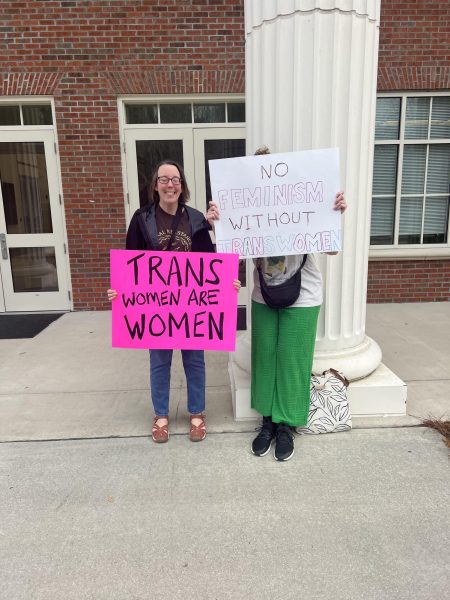
In regard to Gaines’ social media persona and posts, Peel said, “This kind of speech and rhetoric is violent. And can result in literal violence too. It’s dangerous and it’s irresponsible.” Peel stated that she doesn’t understand what Gaines “is so afraid of” when it comes to transgender athletes, and in this case transgender women, in sports.
Peel encourages students and any individual under the LGBTQIA+ umbrella to resist the current changes happening in the government regarding women and gender equality rights. “There are people being very vocal and resisting, but you also need people doing the quiet stuff…That’s resistance, you know? And it could be educating, it could be donating money…Resistance can look like a lot of different things.” She also states that support within the community is another positive form of resistance. “Resistance again, too, for certain marginalized and oppressed peoples is survival, right?”
Auden Pelz and Madalynne Senn did not know much information about Turning Point USA before protesting at the event. “I did a little bit of research, like what are they standing for, and I just, I couldn’t look at it,” Senn stated. “I feel like it’s a little unnerving. It’s definitely not a good reflection of UNCW,” she continued. “I feel like we have a bigger population of people who have Democratic beliefs than most people think. Because, you know, when you look at UNCW, it’s like a lot of people look ‘copy and paste,’ a lot of people look like they stand for the same thing. But once you go deeper, you can realize, you make those connections with other people, and you can see that it’s not all like that. So, it’s a little bit disheartening to see that people are supporting someone like this.”
Pelz stated that she is a member of the queer community and tries to be “empathetic to every viewpoint,” but that she cannot stand for people who negatively affect human rights. “I just know so many trans women and trans men who have been in sports their whole lives and enjoy doing it, and how the world is going right now, they might not be able to continue doing what they love.” She continued, “I have friends who are conservative and we’re able to discuss things in a very respectful way. But it’s just like, hearing some of the rhetoric this specific woman spouts is just so harmful and it has this violence to it. I don’t know, it just scares me.”
Riley Gaines and her “advocacy” should serve as a lesson to those wishing to join the conversation about transgender women competing in women’s sports. There is nothing wrong with asking questions or displaying hesitation. Afterall, this is a timely topic, one that many have probably never had to think about or form an opinion on. So, it is okay to be confused or concerned. But with this, there should come empathy and kindness. The discussion of transgender women’s place in women’s sports is an important one, but it should not come with invalidating identities; because transgender women are women, and they are worthy of the same protection and treatment as cisgender women. People like Gaines, Trump and other advocates seek to create an “us versus them” mentality. They are seemingly focused on “biological advantages,” “fairness” and “protection,” when in reality all they aim to do is spread their hatred for an entire existence of people. At the end of the day, this is not an issue of sports; this is an issue of respect.
Trans Visibility Day is celebrated on March 31t o honor transgender individuals and their stories. Let that be a reminder that no matter your viewpoints or who you voted for in the election, everyone is a person whose existence is deserving of respect.
Resources:
Effective February 6 2025, visit the NCAA’s participation policy for transgender athletes here



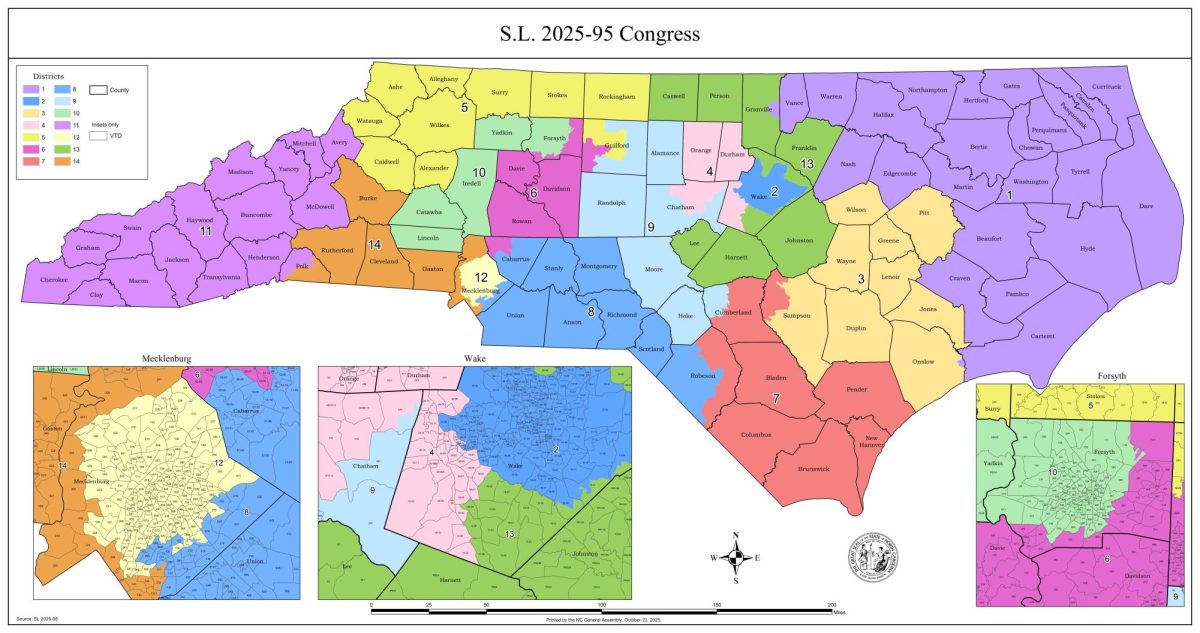
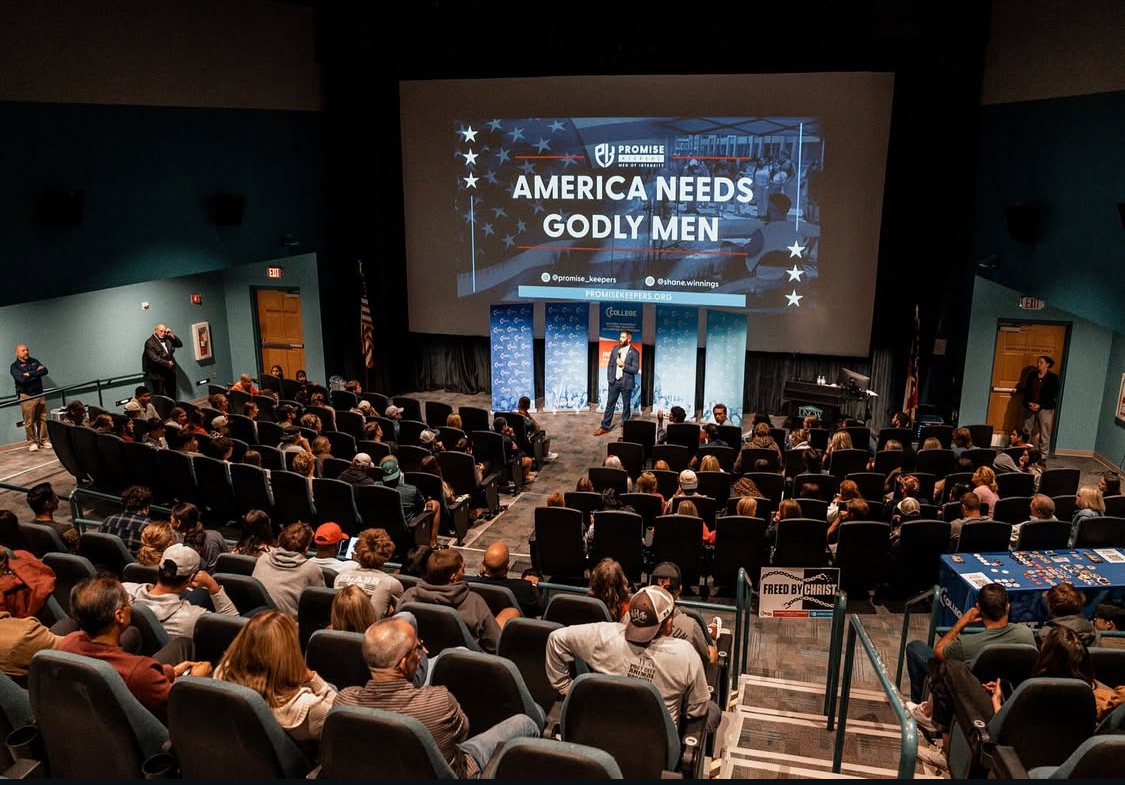


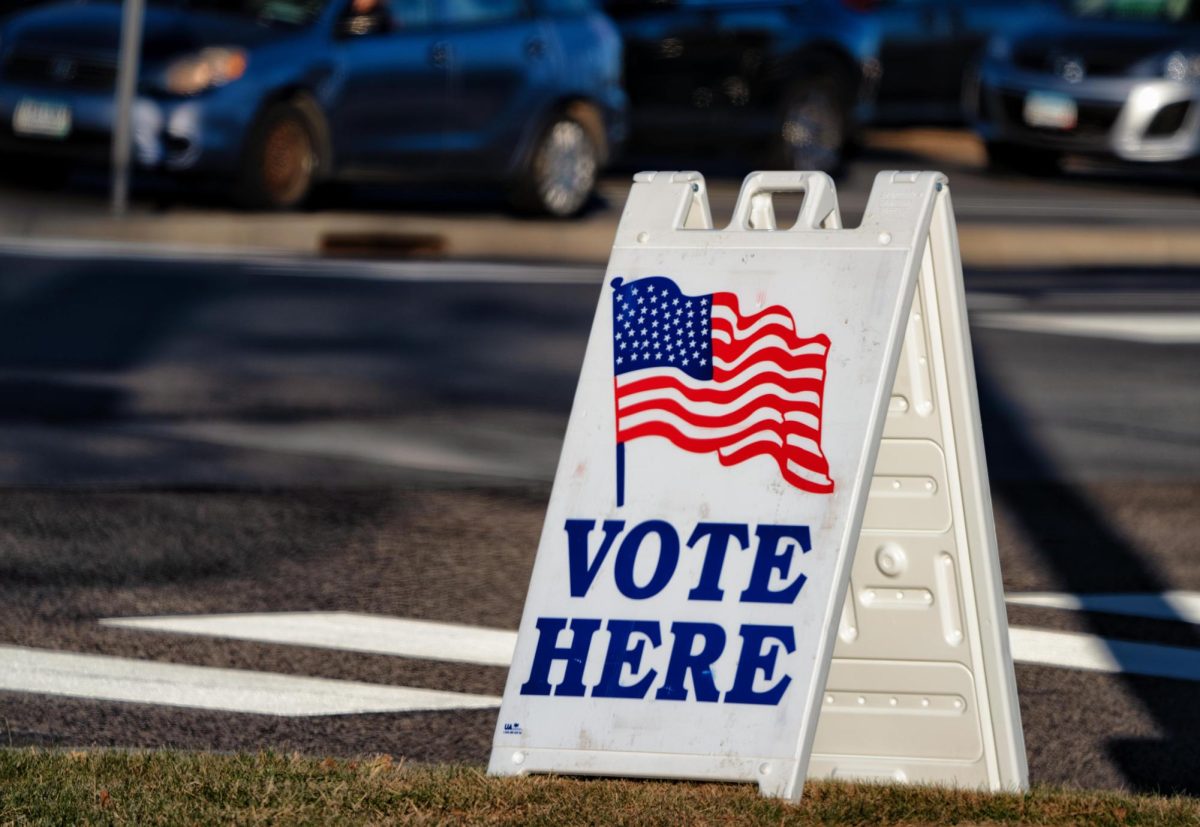


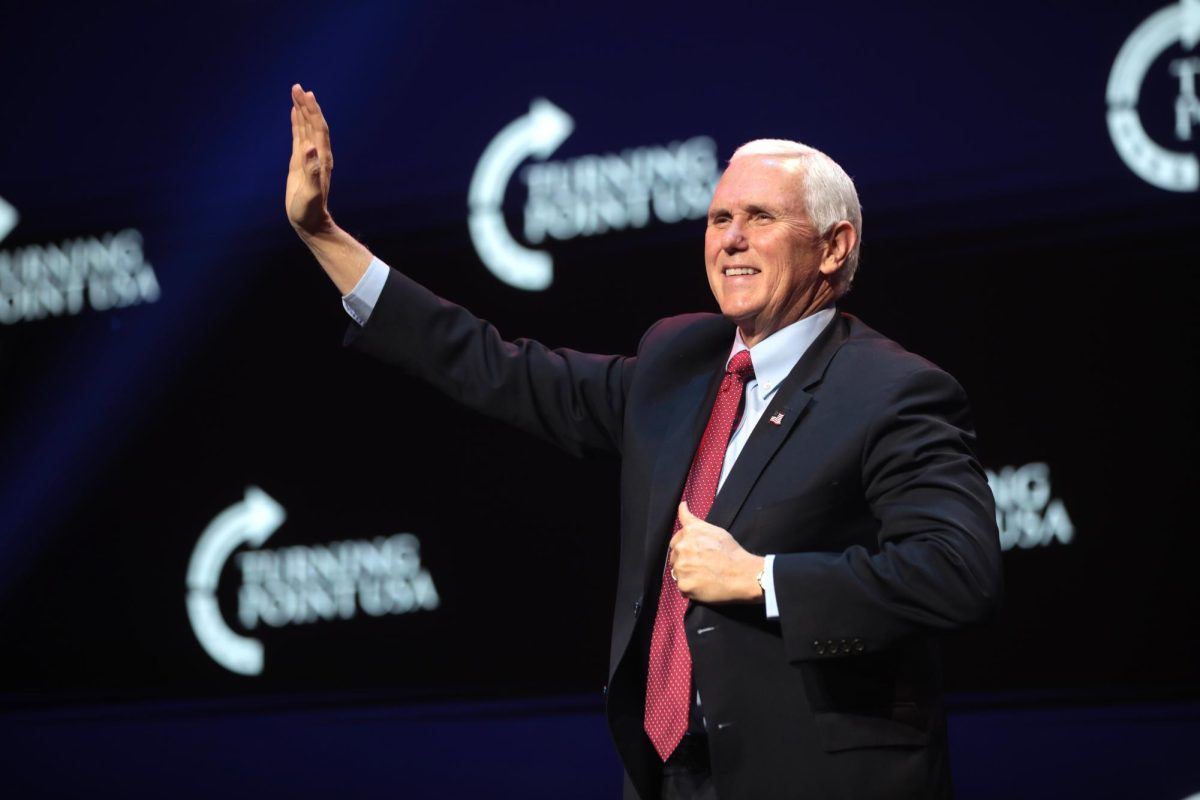



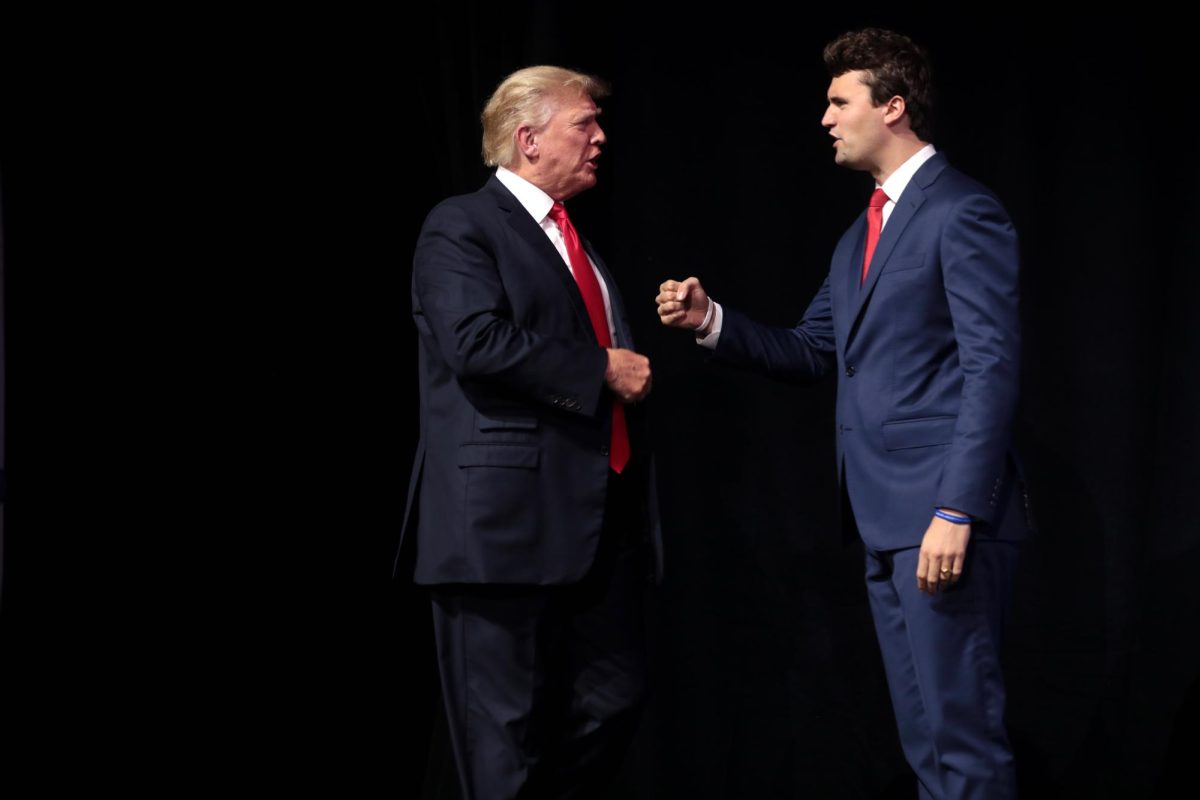





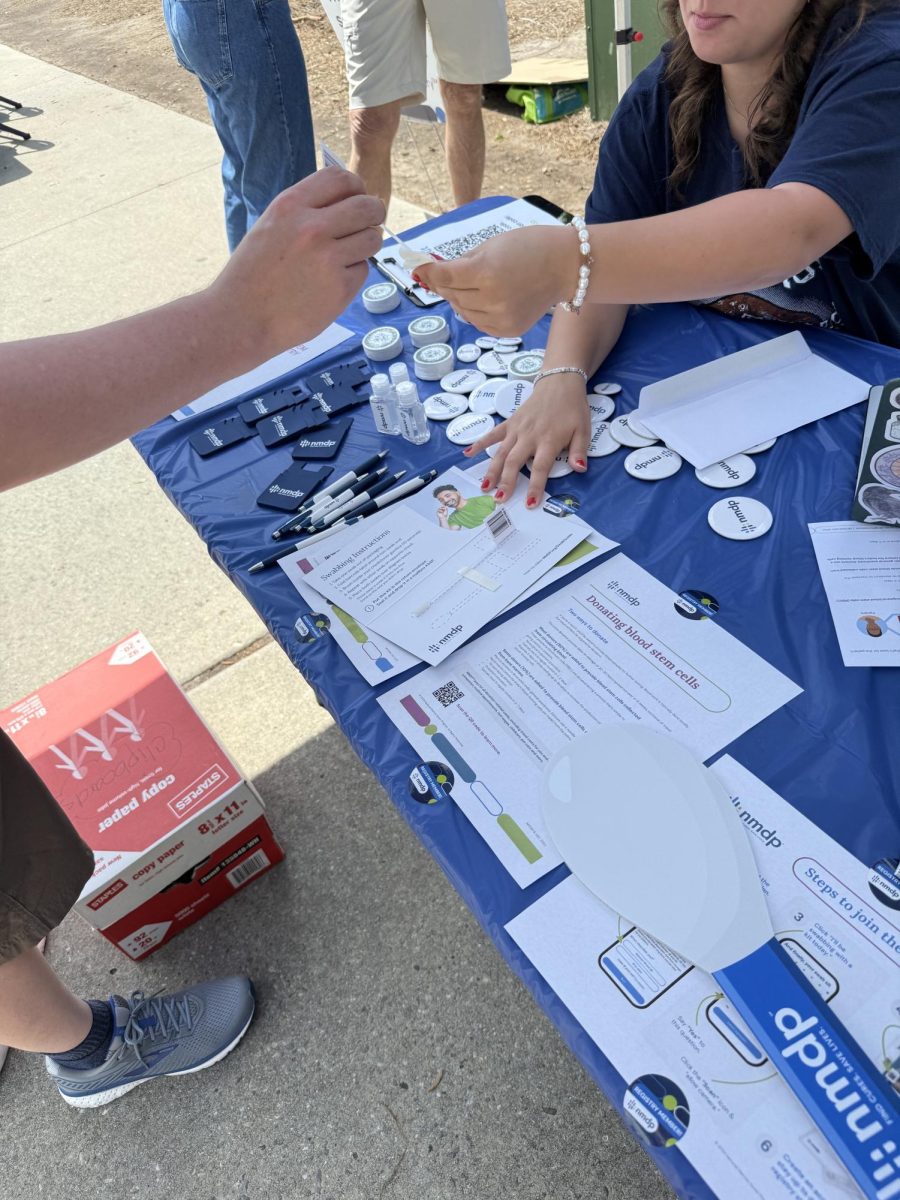
KCM • May 4, 2025 at 2:22 pm
This article is pure one-sided spin. Riley Gaines isn’t spreading hate—she’s standing up for fairness in women’s sports. She’s speaking from real experience as an NCAA swimmer, not pushing some fringe agenda. Calling her views “disrespectful” is a lazy way to dodge the actual issue: biological males competing against women is unfair, and a growing number of athletes know it.
UNCW should be a place for open dialogue—not hit pieces that try to shame people into silence. You don’t have to agree with her, but dismissing her as hateful is exactly why more people are afraid to speak up. Respect goes both ways.